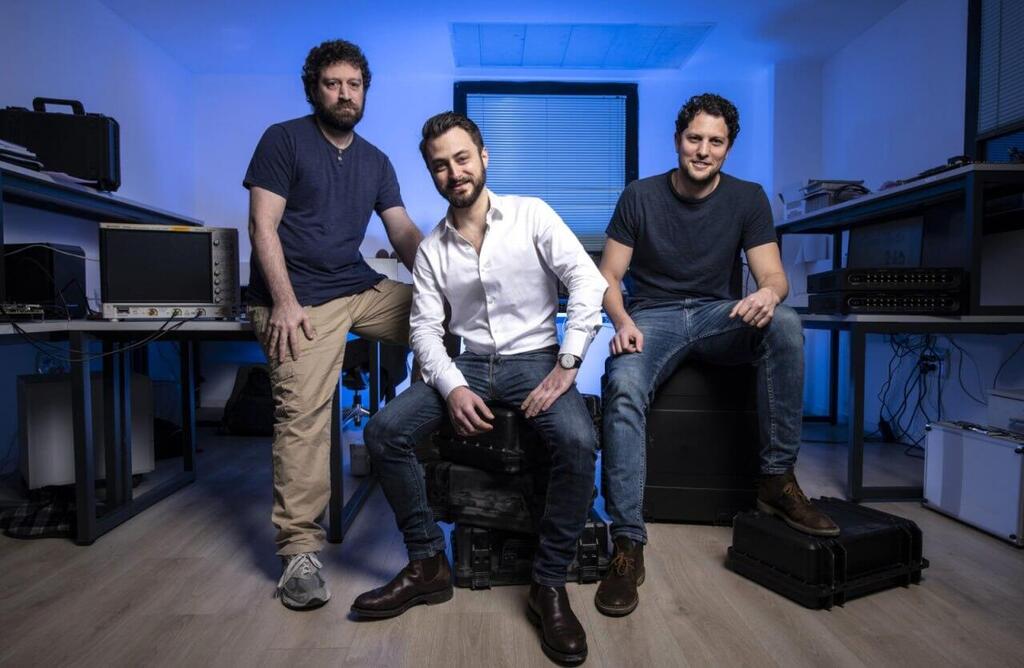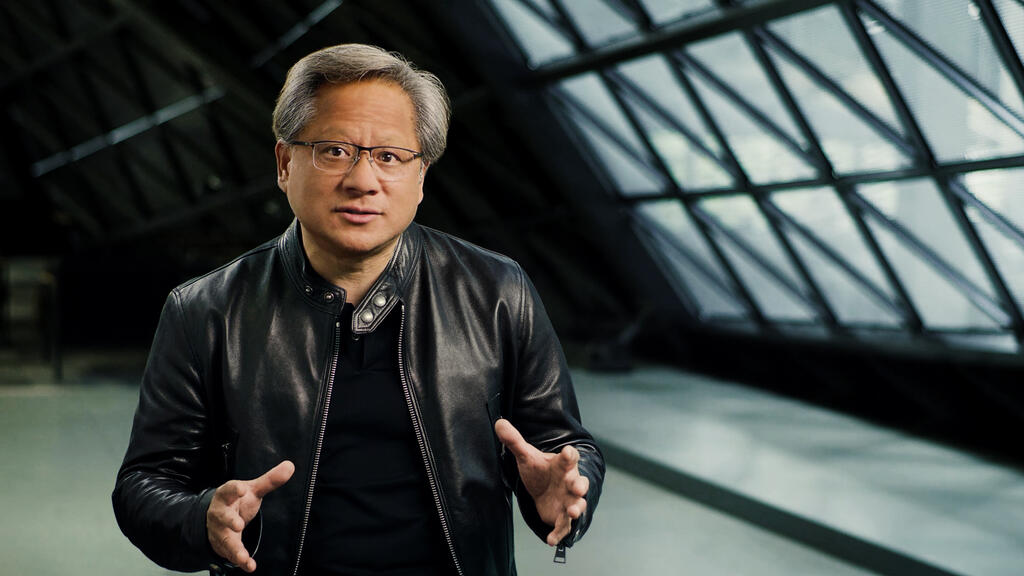Quantum Machines (QM), an Israeli quantum computing company, has announced the successful closure of its third funding round, securing $170 million. This accomplishment places QM significantly ahead of other Israeli quantum companies, which have only raised tens of millions to date. The company’s total funding now stands at $280 million.
The main factor driving investor interest lies in QM's ability to generate significant revenue — an exception in an industry where most players do not anticipate income for years. QM specializes in developing and operating control and management systems for quantum computers, rather than building the computers themselves. Its clientele consists of companies that develop quantum computers, and QM claims to serve hundreds of customers, accounting for more than half of the quantum computing companies globally. While the company has not disclosed exact revenue figures, estimates suggest annual revenues in the tens of millions of dollars.
The latest funding round was led by PSG Equity’s Israeli branch, under the leadership of Ronen Nir and Rotem Shahar. It included participation from Red Dot Capital Partners, led by Yoram Oron, Yaniv Stern and Barak Solomon, as well as Intel Capital, the corporate venture arm of Intel, represented by Liza Cohen, alongside other investors. Previous backers include TLV Partners, Battery Ventures and serial entrepreneur-investor Avigdor Willenz.
Intel Capital’s involvement in the round was noteworthy, especially given the internal changes within the firm as it prepares to spin off from Intel Corporation and operate as an independent entity. In an interview with Ynet, Liza Cohen, a key investor from Intel Capital’s Israeli branch, emphasized the firm’s growing focus on quantum technology: “This is highly relevant for us. We’re building a portfolio in this field, and QM is our first global investment in quantum technology. We wanted a company with real traction, not just a vision on paper. This team has demonstrated not only exceptional expertise in quantum technology but also sharp business acumen.”
Rotem Shahar, an investment manager at PSG Equity, added: “The quantum computing market is growing at an accelerated pace. QM’s unique ability to work with diverse quantum technologies positions it as a global leader in the field.”
This funding round comes in the wake of recent statements by NVIDIA CEO Jensen Huang, which sent shockwaves through the quantum computing sector. Last month, Huang suggested that practical quantum computing might still be 15 years away in the best-case scenario, or as long as 30 years in a worst-case scenario. Soon after, Meta CEO Mark Zuckerberg echoed similar skepticism, stating that “quantum computing is still very far from being practical.” These cautious assessments contradict the optimistic outlooks presented by quantum computing companies and have caused some investors to reevaluate their positions, leading to declines in the stock prices of publicly traded quantum firms.
Dr. Itamar Sivan, CEO of QM, is well-acquainted with NVIDIA, having collaborated with the company to develop a hybrid quantum computing demonstration system that integrates NVIDIA’s cutting-edge chips with quantum processors. Sivan remains optimistic despite Huang’s comments: “I don’t think Huang is less enthusiastic. On the contrary, I think he’s very excited. NVIDIA itself is investing significantly in this field, and I’m confident they’ll make major announcements soon.”
However, Sivan acknowledges that practical quantum computing remains a long-term goal. “Huang was referring to the timeline — whether breakthroughs will happen in two years, five years, or 15 years. Either way, the computational potential is enormous. We’re talking about taking problems that are currently unsolvable — problems that would take 100,000 years to solve — and solving them in minutes, hours or days. This incredible capability won’t materialize overnight; it will take time. And perhaps it’s better for everyone that it doesn’t happen within the next two years.”
In recent years, competitors have made notable advancements. Google unveiled its "Willow" chip, IBM introduced its "Condor" chip — the largest quantum chip to date — and Microsoft recently announced a quantum processor based on a new material known as a “topological conductor,” which is neither gas, liquid nor solid.
In Israel, two companies — Quantum Source and Quantum Art — are developing quantum computers using different technologies. Additionally, support companies like Quantum Machines, Kadma and Classiq are helping advance the ecosystem. However, relative investment in Israeli quantum companies remains small compared to other sectors within the country’s tech industry.
On the global stage, several quantum computing companies, such as D-Wave, Rigetti Computing and IonQ, are publicly traded, with their stock prices often reacting to announcements and rumors. Investor interest has also driven the success of the QTUM ETF, which tracks quantum stocks and has delivered a 60% return this year.
While quantum computing remains in its infancy, its potential to reshape the world is unparalleled. Quantum computers promise extraordinary computational power, enabling solutions to problems currently deemed unsolvable, and providing strategic advantages to both corporations and nations. The primary challenge for quantum companies lies in achieving stable and reliable scaling of quantum bits (qubits). So far, quantum computers operate with only tens or hundreds of qubits, with error rates that prevent practical applications.
QM distinguishes itself by focusing on operating systems that are compatible with any emerging quantum technology. This adaptability is a key driver of its funding success. “We’re raising this very large round to make the next big leap,” Sivan explained. “We’re developing systems for next-generation quantum computers with around 20,000 qubits. Ultimately, this is a long race, but it’s probably the most important technological race on Earth today.”
Despite its business achievements — including hundreds of institutional clients — QM remains tight-lipped about the identities of its customers, revenue figures or the valuation underpinning its latest funding round.
Get the Ynetnews app on your smartphone: Google Play: https://bit.ly/4eJ37pE | Apple App Store: https://bit.ly/3ZL7iNv
When asked why the company doesn’t disclose business data, Sivan responded: “Investors typically categorize companies into two types: either you’re a numbers company, where they calculate your ARR and gross profit, or you’re a trillion-dollar dream company. What’s unique about QM is that we’re both. We have significant sales and meaningful growth, but we’re also a dream company aiming to realize the world’s greatest computational power. Of course, there’s interest in debating specific numbers, but that’s not the full story.”
Regarding a potential IPO, Sivan remained noncommittal: “Honestly, it’s hard to say at this point. I think if QM wants to go public, it could do so within a reasonable timeframe. Our business is growing nicely — it’s not dependent on one or two clients, nor tied to any strategic partners. Instead, it’s based on real sales with real products and real customers. Whether we go public or remain private will ultimately be a decision for the board.”
Founded in 2018 by Dr. Itamar Sivan, CTO Yonatan Cohen, and Chief Engineer Nissim Ofek, QM employs 170 people, half of whom are based in Israel, with the rest spread across Denmark, Germany, Japan, the U.S., and other countries.
Last year, QM launched the Israeli Quantum Computing Center (IQCC) in partnership with the Israel Innovation Authority and Tel Aviv University. This applied research facility houses three quantum computers (developed by non-Israeli companies) and serves as a platform for experiments and training for academic and industry clients. As Sivan described it, the center aims to “realize the vision of what a quantum data center looks like.”
When asked about government involvement in supporting the quantum sector, Sivan stated: “Ultimately, every government operates within its budgetary constraints. I can confidently say there’s a strong willingness to help. The Innovation Authority deeply understands the need to balance good technology with business and industry. This understanding and support are there. At the end of the day, all nations recognize that this is the most important arms race of our generation.”




